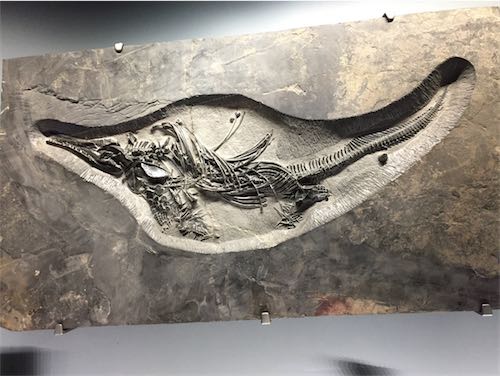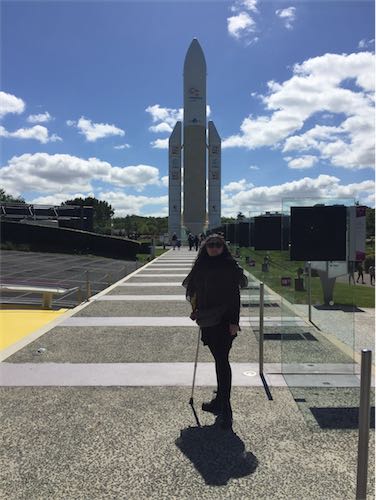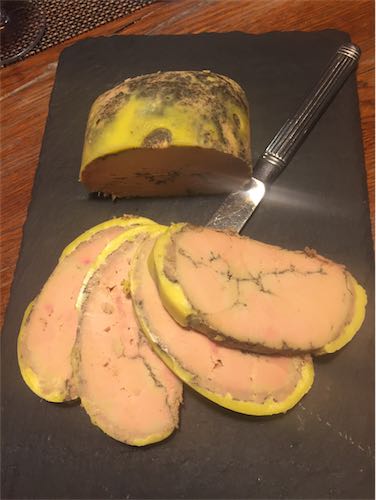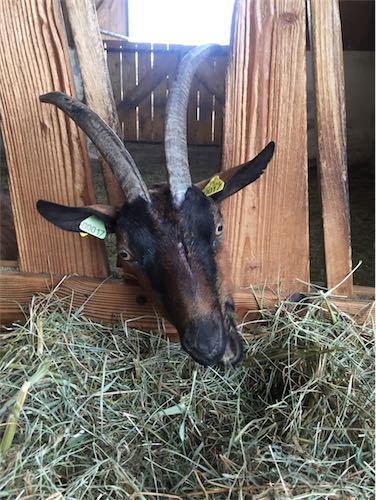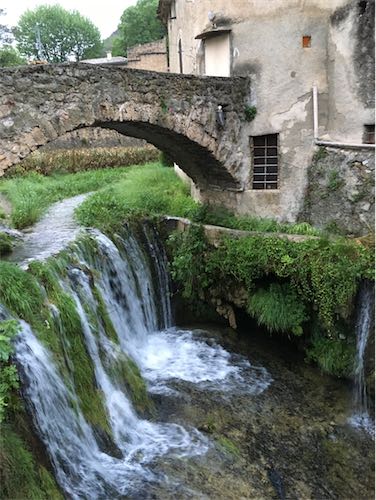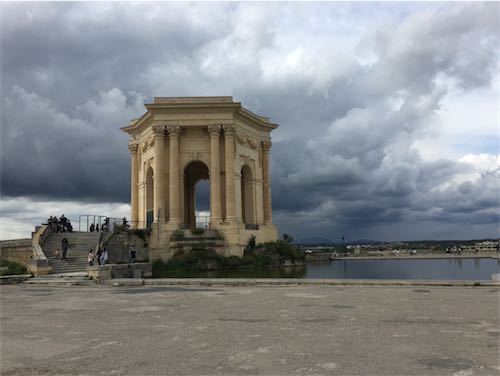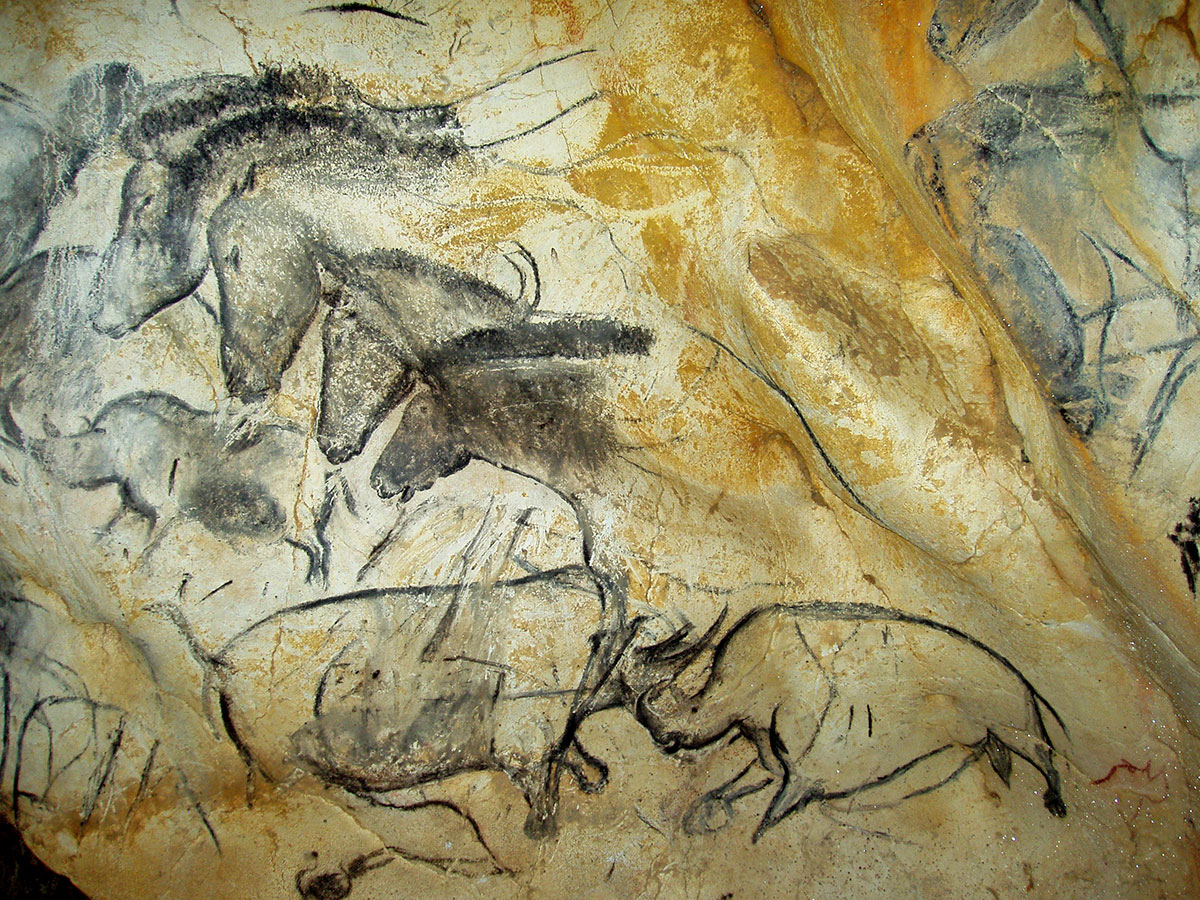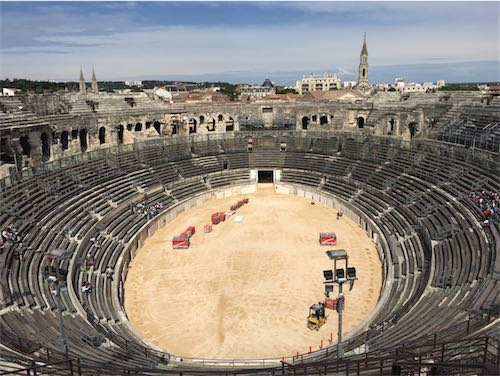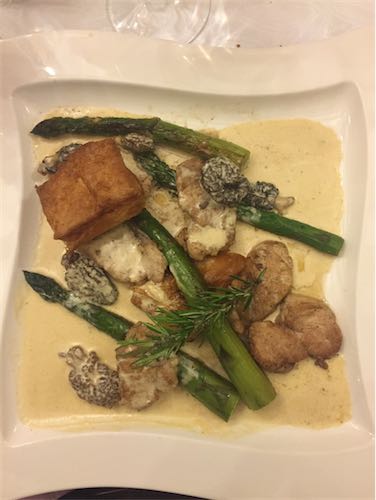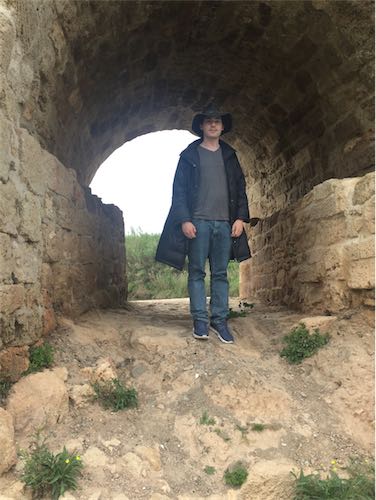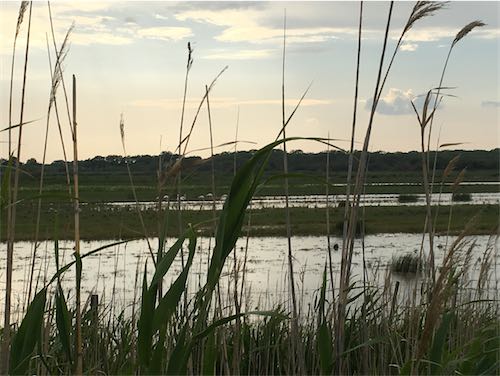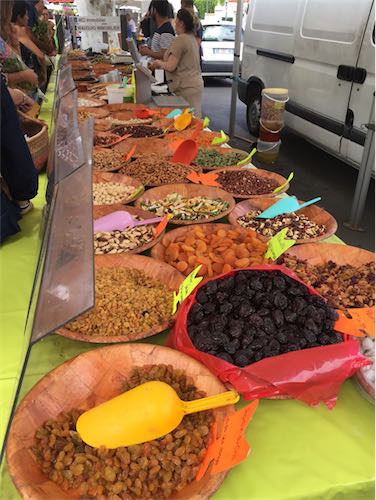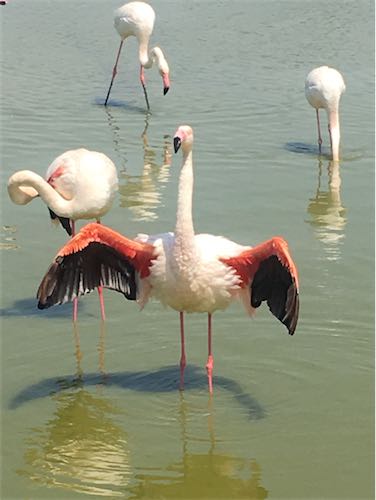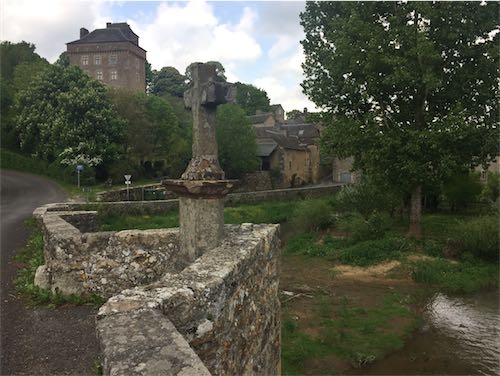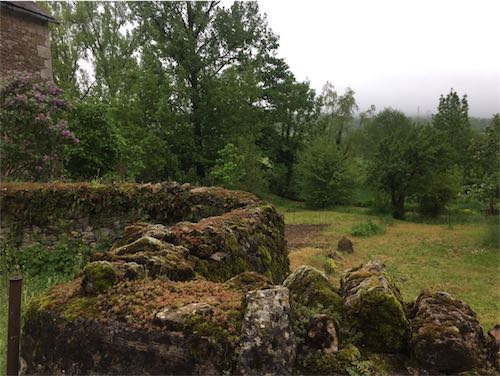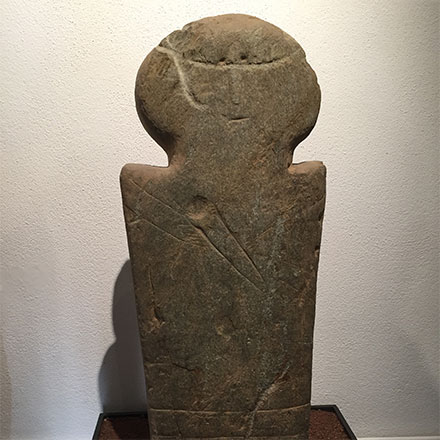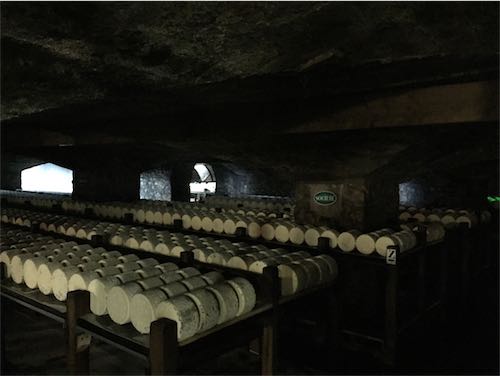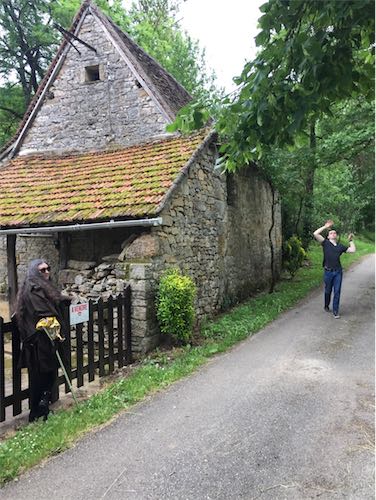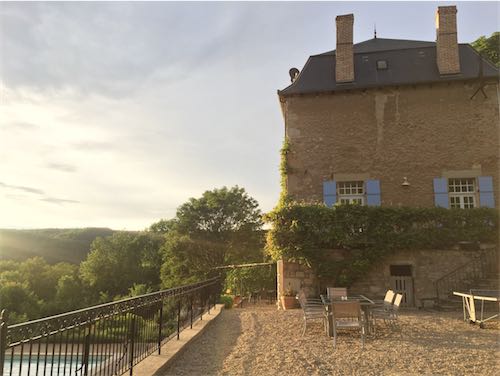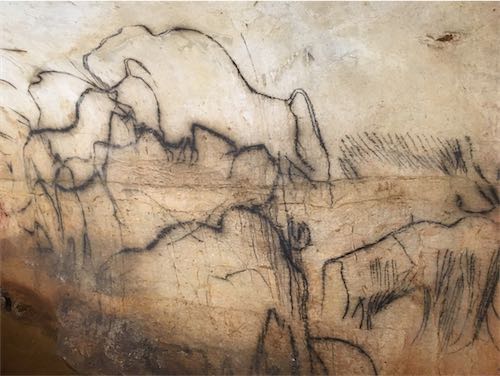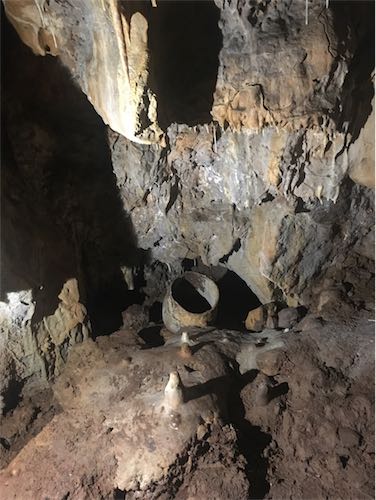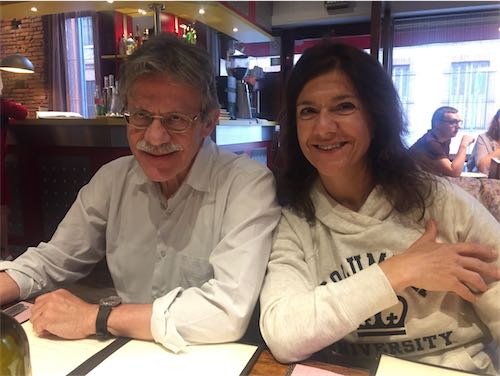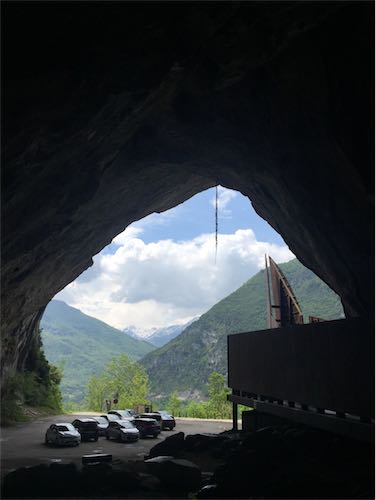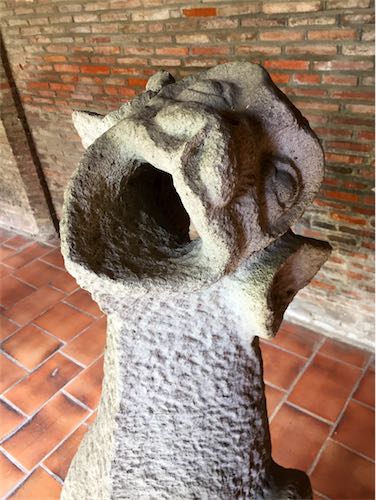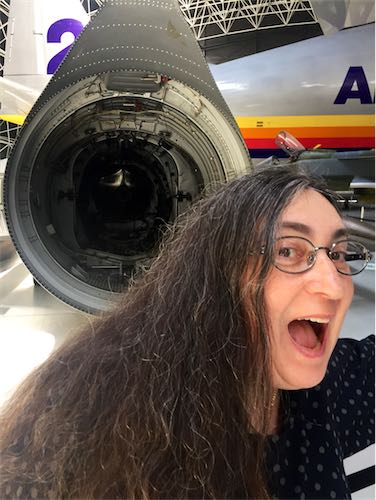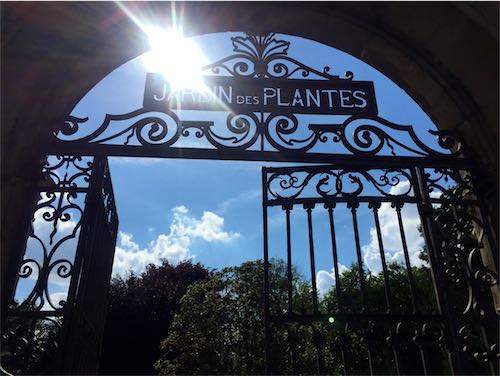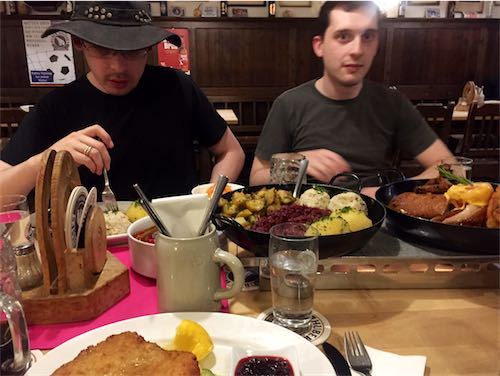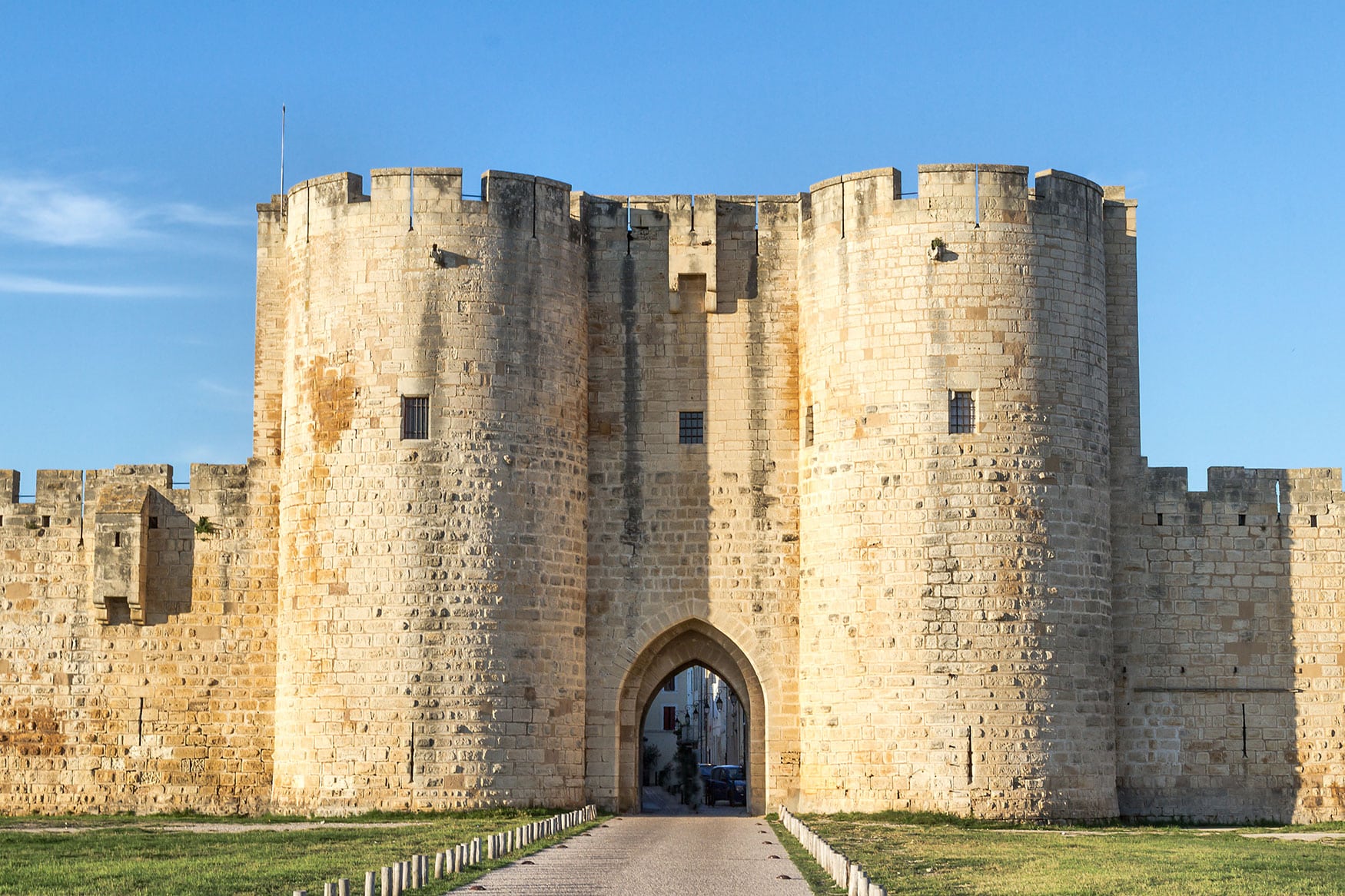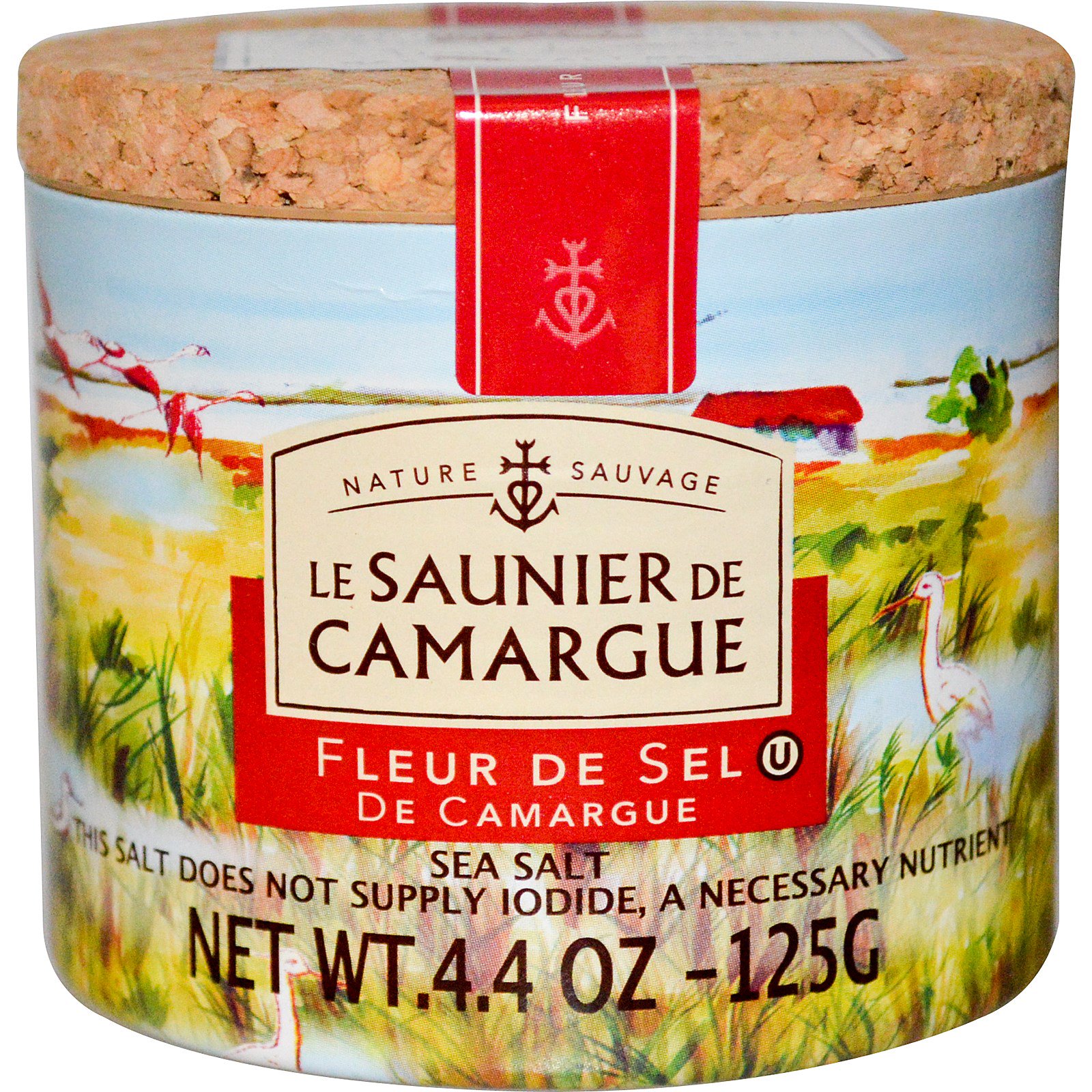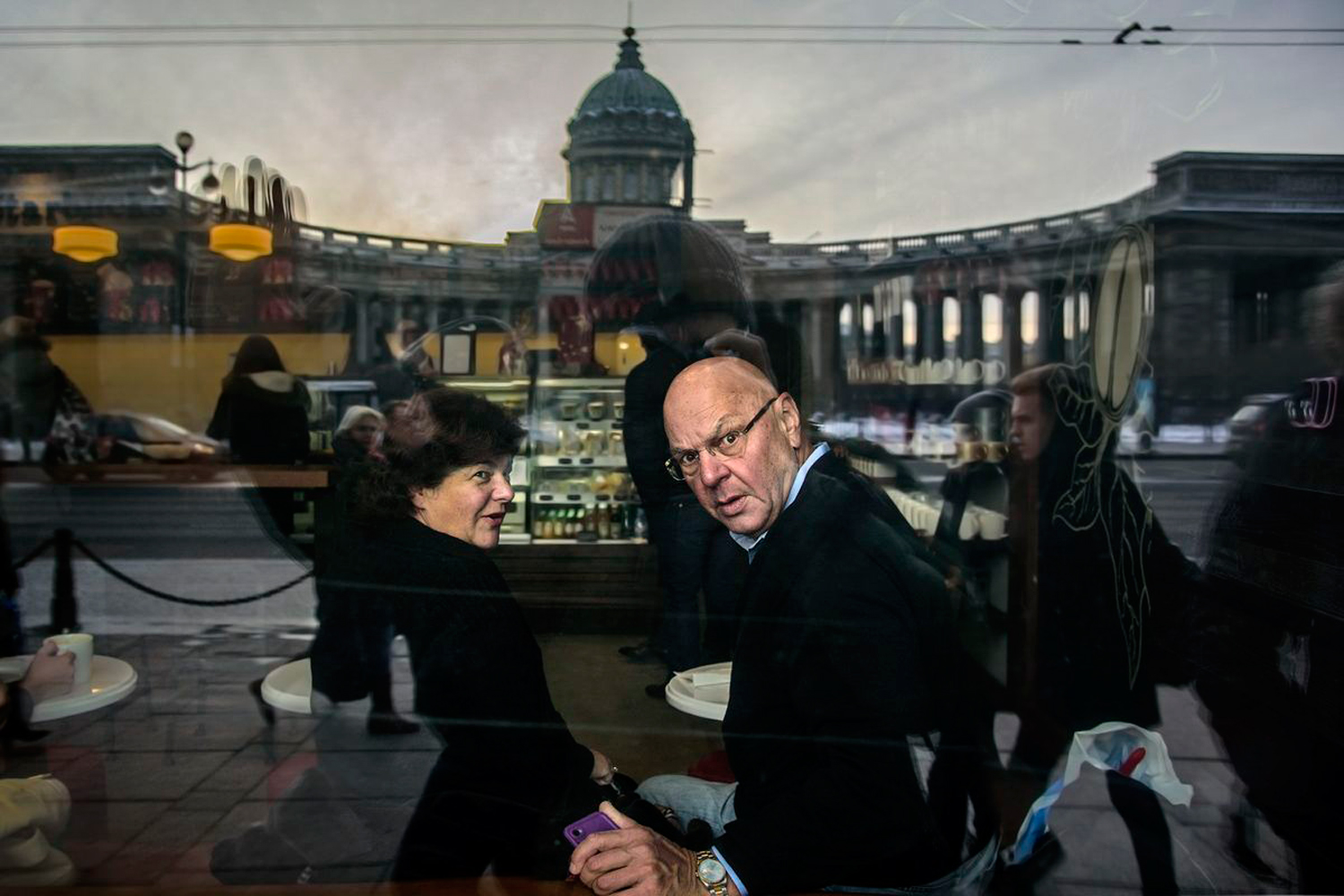Day 13 — Lansargues; Camargue; Aigues-Mortes Airbnb Rental — Domaine L’Enclos De La Croix, 2 Avenue Marius Alès, Lansargues, Languedoc-Roussillon map
So I braved the elements, walked the 500 meters to the Hotel du Poulet, and faced the chickens. I wanted their eggs! With great reluctance, they gave them up.
I brought them back for Christopher to cook on the ancient stove.
After breakfast, the winemaker gave us a private tour of the vineyard and cellar. He said that the French prefer to drink wine from local domains grown on local vines, and also prefer family wineries which have been around for awhile. Our hosts, whose family has been running this vineyard for two hundred years, certainly qualify on the longevity side. However Anne, one of the owners, told us that in the last hundred years, the roots have shrunk from a depth into the ground of a hundred centimeters to just thirty centimeters deep now. This effects the whole idea of terroir as the vines are only accessing the top layer of the soil.
The owners are working hard to change this. The winemaker went to great pains to explain how everything they do is organic now, and how the ecosystem—the birds, the rabbits, the bats, the chickens, the trees, the grass, and so forth—are an important part of the effort to return to how they used to work the land, and create a sustainable organic agricultural product. This isn’t some hippy conceit—he said that the production all over the region has been steadily declining and farmers had to change. Climate change is effecting their yields as well; it’s getting hotter and wetter, leading to mold and disease.
They make their wine in giant concrete tanks. The concrete is alkaline and the grape juice is acidic, so they use a special paint to keep them separate. They produce several reds, several whites, and a rose.
Afterwards, we returned to the Parc Ornithologique Pont de Gau in the Camargue with the boys.
It was hot. So to combat the sun and mosquitoes, I wore my hat and a scarf. I guess I stand out—people photographed me.
This stock photograph of the Aigues-Mortes entrance wall was shot on a nicer day than ours.
They make a kind of salt here, Le Saunier de Camargue Fleur de Sel, that we particularly like and use at home.
For days, our weather app said to expect thunderstorms, but we’d been lucky. Today, our luck ran out.
It was very touristy—we hated it. Christopher grumbled all the way. I was hoping to get inside the walls and walk around, but the thunderstorm finally hit. Really torrential rain, with lots of lightning, turned the streets into rivers. Thunder from the skies and endless grumbling from Christopher and the boys.
The men ran into a church. I went to buy an umbrella. And with that, we managed to hide inside a bakery.
Waiting out a rainstorm in a french bakery—a good one—doesn’t seem to be the worst of fates. But we did get totally soaked all the way to our underwear. It took several hours of work with a hairdryer and a clothes dryer to dry up the mess.
We couldn’t go out for dinner. Instead, we had to eat leftover cheese and charcuterie, together with our fresh baguettes, pastries, and wine (red and sweet) for dinner at home. Boo hoo.
Back at the vineyard, though, it was lovely with not a drop of rain.
The wisteria in front of our door must be dozens of years old…if not a hundred! The trunk was easily as thick as my thigh, if not my waist, in places.
This is somewhat random. My parents sent me an internet forward with a collection of photographs taken in Russia. In the middle was this photograph of a very recognizable Marina and Len! Interesting photograph, too.
Christopher tracked down the shot. It turns out that it was taken in 2014 by Alexander Petrosyan (Instagram), a well-known Russian photographer, in St. Petersburg. The photo is featured as the topper of this interview with the photographer.
So this is our last day at the winery in Lansargues. We leave tomorrow for our next location.
